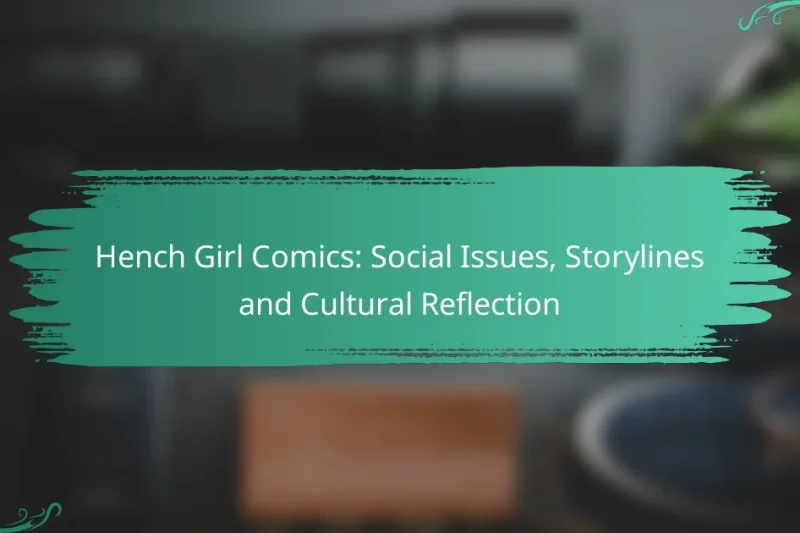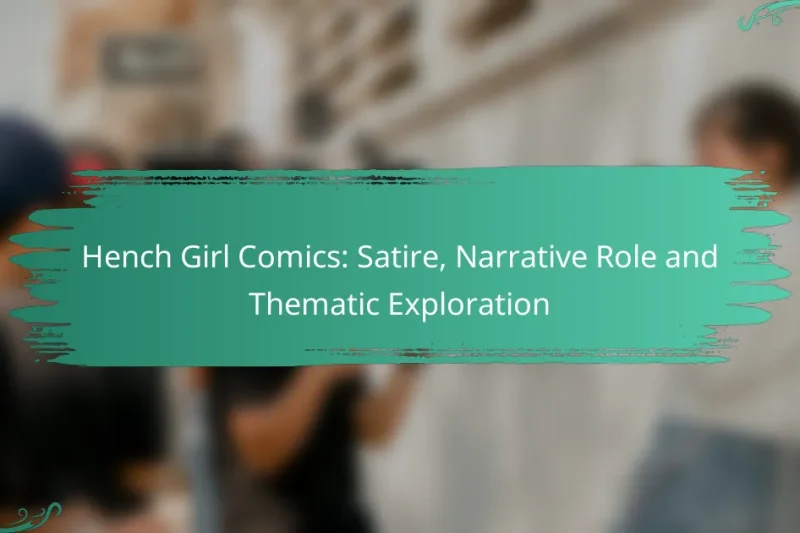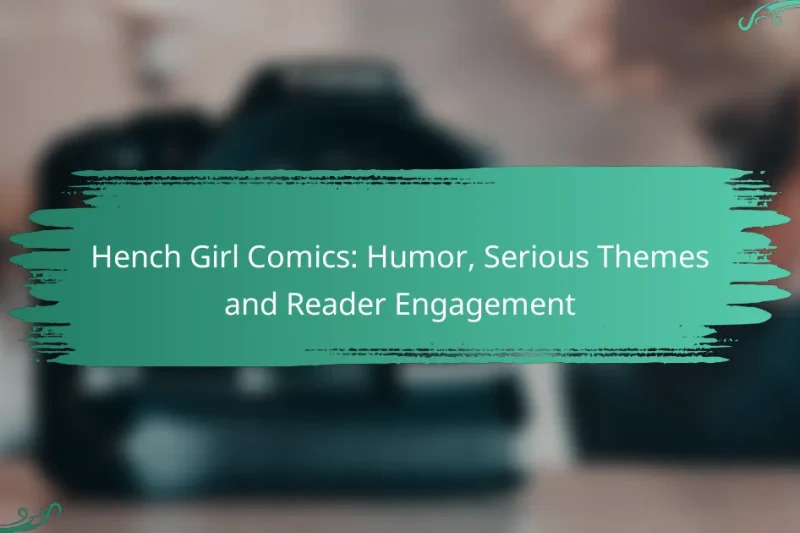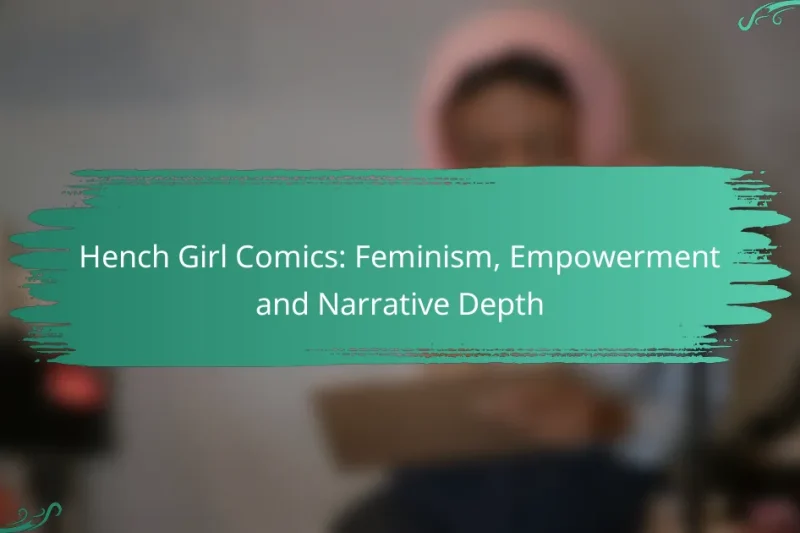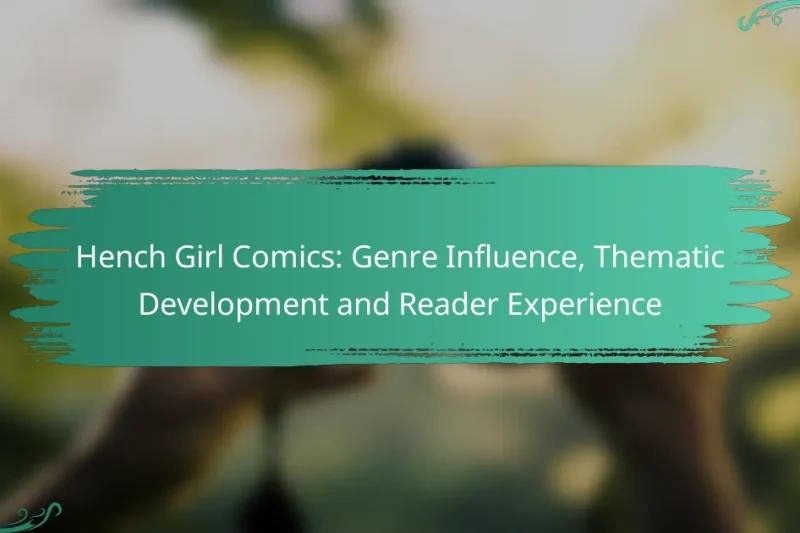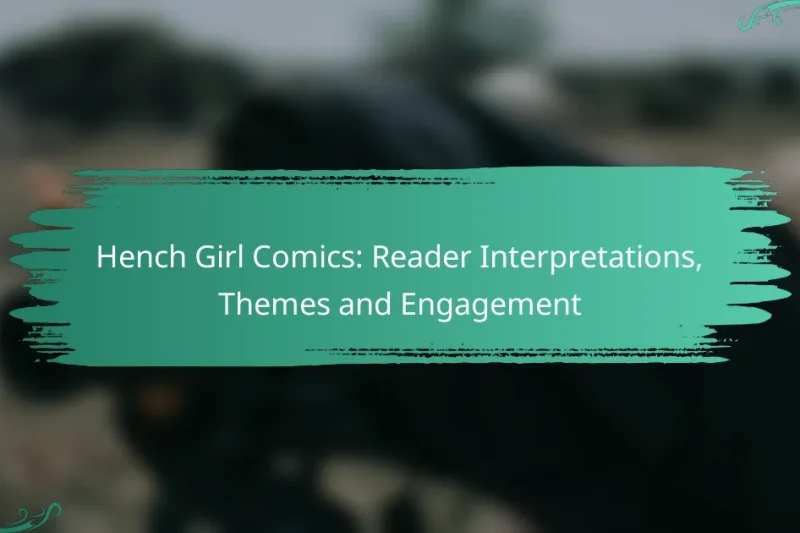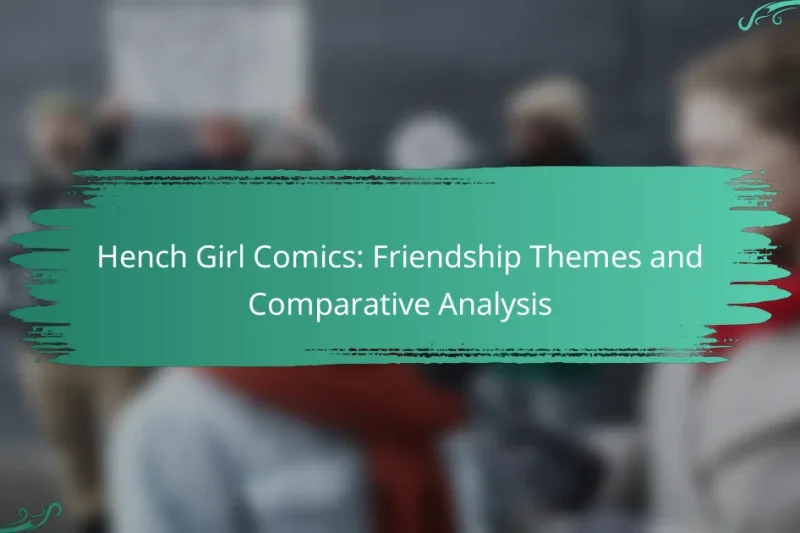Hench Girl Comics creatively address social issues by integrating humor and satire into their engaging narratives. … Hench Girl Comics: Social Issues, Storylines and Cultural ReflectionRead more
Hench Girl Comics: Themes and Messages Explained
Hench Girl Comics delve into themes of empowerment, friendship, and feminism, offering readers a blend of entertainment and introspection. By portraying female characters as complex individuals, these comics challenge traditional stereotypes and highlight their journeys of strength and growth. Through engaging narratives, they invite readers to reflect on societal norms and the dynamics of power and individuality.
What themes are prevalent in Hench Girl Comics?
Hench Girl Comics explore a variety of themes that resonate with readers, including empowerment, friendship, feminism, adventure, and conflict resolution. These themes not only entertain but also provoke thought about identity and personal growth.
Empowerment and Identity
Empowerment and identity are central themes in Hench Girl Comics, as characters often navigate their roles in a world dominated by superheroes and villains. The protagonist typically starts as an underdog, gradually discovering her strengths and asserting her individuality.
This journey of self-discovery allows readers to connect with the characters on a personal level, as they witness the transformation from a henchperson to a confident individual. This theme encourages readers to embrace their unique identities and pursue their goals despite societal expectations.
Friendship and Loyalty
Friendship and loyalty play crucial roles in Hench Girl Comics, highlighting the importance of support systems in challenging circumstances. The bonds formed between characters often provide the emotional backbone of the story, showcasing how loyalty can lead to personal growth and resilience.
These relationships often face trials, testing the characters’ commitment to one another. Through these challenges, the comics illustrate that true friendship can withstand adversity and foster a sense of belonging.
Feminism and Gender Roles
Feminism and gender roles are examined through the lens of female characters who defy traditional expectations. Hench Girl Comics often portray women in diverse roles, challenging stereotypes associated with both heroes and villains.
This exploration encourages discussions about gender equality and the representation of women in media. By presenting strong female characters who are multifaceted and relatable, the comics inspire readers to question societal norms and advocate for change.
Adventure and Self-Discovery
Adventure and self-discovery are key elements in Hench Girl Comics, as characters embark on quests that test their limits. These adventures often serve as metaphors for personal growth, allowing characters to confront their fears and develop new skills.
Through thrilling escapades, readers are reminded that the journey of self-discovery is filled with challenges and triumphs. This theme encourages individuals to embrace their adventures, both big and small, as opportunities for growth.
Conflict and Resolution
Conflict and resolution are integral to the narrative structure of Hench Girl Comics, driving the plot and character development. Characters often face internal and external conflicts that challenge their beliefs and relationships.
The resolution of these conflicts typically leads to personal growth and a deeper understanding of oneself and others. This theme emphasizes the importance of facing challenges head-on and finding constructive ways to resolve differences, ultimately promoting a message of hope and resilience.
How do Hench Girl Comics portray female characters?
Hench Girl Comics depict female characters as multifaceted individuals, often challenging traditional stereotypes. These comics explore their complexities, showcasing strength, vulnerability, and growth throughout the narrative.
Complex Character Development
In Hench Girl Comics, female characters undergo significant development, moving beyond one-dimensional roles. They often face moral dilemmas and personal challenges that contribute to their growth, allowing readers to connect with their journeys.
For example, a character may start as a sidekick but gradually evolve into a leader, reflecting the struggles and triumphs of real-life experiences. This depth adds richness to the storytelling, making the characters relatable and inspiring.
Diverse Representation
Diverse representation is a hallmark of Hench Girl Comics, featuring characters from various backgrounds, ethnicities, and identities. This inclusivity not only enriches the narrative but also resonates with a broader audience, fostering a sense of belonging.
By showcasing a range of experiences, these comics highlight the importance of varied perspectives in storytelling. Readers can see themselves reflected in the characters, which enhances engagement and relatability.
Role Reversals
Role reversals are a common theme in Hench Girl Comics, where traditional gender roles are flipped. Female characters often take on roles typically reserved for males, such as villains or powerful leaders, challenging societal norms.
This subversion not only entertains but also prompts readers to reconsider preconceived notions about gender and power dynamics. By presenting women in positions of authority, these comics advocate for equality and empowerment.
What messages do Hench Girl Comics convey about society?
Hench Girl Comics communicate critical messages about societal norms, individuality, and power dynamics. Through their narratives, they challenge conventional roles and encourage readers to question established hierarchies.
Critique of Traditional Norms
Hench Girl Comics often critique traditional societal norms by portraying characters who defy stereotypes. For instance, female characters are depicted not merely as sidekicks but as complex individuals with their own ambitions and strengths. This subversion of typical roles invites readers to reconsider the limitations imposed by societal expectations.
By highlighting the absurdity of certain norms, these comics encourage a dialogue about gender roles and the expectations placed on individuals based on their identity. This critique can resonate with readers who feel constrained by similar societal pressures.
Encouragement of Individuality
Individuality is a central theme in Hench Girl Comics, where characters often embrace their unique traits and perspectives. The narratives celebrate personal growth and self-acceptance, encouraging readers to value their differences. This message is particularly empowering for those who may feel marginalized or overlooked.
Through their journeys, characters demonstrate that embracing one’s individuality can lead to strength and resilience. This theme resonates with audiences, promoting the idea that authenticity is a vital component of personal success and fulfillment.
Exploration of Power Dynamics
Hench Girl Comics delve into the complexities of power dynamics within society, often illustrating how power can be both empowering and oppressive. Characters frequently navigate relationships where power is contested, revealing the nuances of authority and influence. This exploration encourages readers to reflect on their own experiences with power structures.
By showcasing the struggles and triumphs of characters in these dynamics, the comics highlight the importance of agency and the impact of choices. Readers are prompted to consider how power affects their lives and the lives of those around them, fostering a deeper understanding of social interactions.
How do Hench Girl Comics compare to traditional superhero narratives?
Hench Girl Comics offer a fresh perspective on superhero stories by focusing on the lives and experiences of side characters rather than the main heroes. This shift allows for a deeper exploration of themes like morality, loyalty, and personal growth, often contrasting sharply with the typical hero-villain dichotomy found in traditional narratives.
Subversion of Tropes
Hench Girl Comics frequently subvert common superhero tropes, such as the idea of absolute good versus evil. By showcasing the complexities of characters who are often seen as villains, these comics challenge readers to reconsider their assumptions about morality and heroism. For example, a hench girl might display more relatable human flaws and virtues than the archetypal hero.
This subversion encourages readers to engage with the narrative on a deeper level, prompting them to question the motivations behind each character’s actions. It highlights that not all villains are purely evil, and not all heroes are entirely virtuous.
Focus on Relationships
In Hench Girl Comics, relationships take center stage, emphasizing the dynamics between characters rather than just their battles. The interactions between hench girls and their bosses, fellow henchmen, or even heroes reveal the emotional stakes involved in their choices. These relationships often drive the plot and character development, making them more relatable to the audience.
This focus on interpersonal connections allows for rich storytelling that explores themes of loyalty, betrayal, and friendship. Readers can see how personal relationships influence decisions and shape character arcs, making the narrative more engaging.
Humor and Satire
Humor and satire are key elements in Hench Girl Comics, providing a lighthearted take on the often serious world of superheroes. By incorporating comedic elements, these comics can critique traditional superhero narratives while entertaining the audience. This approach allows for a playful examination of clichés and absurdities within the genre.
For instance, a hench girl might find herself in ridiculous situations that highlight the often over-the-top nature of superhero conflicts. This humor not only makes the stories enjoyable but also invites readers to reflect on the conventions of superhero storytelling in a more relaxed manner.
What impact do Hench Girl Comics have on readers?
Hench Girl Comics significantly influence readers by providing relatable narratives that explore themes of identity, empowerment, and morality. These comics often challenge traditional superhero tropes, encouraging readers to think critically about their own values and choices.
Inspiration for Young Readers
Hench Girl Comics serve as a source of inspiration for young readers by showcasing characters who navigate complex moral landscapes. These stories often feature protagonists who are not typical heroes, allowing readers to see themselves in characters who face real-life challenges and dilemmas.
For instance, the journey of a hench girl who questions her role in a villain’s plans can motivate young readers to think about their own decisions and the impact they have on their lives and communities. This relatability fosters a sense of agency and encourages self-reflection.
Discussion on Gender Equality
The portrayal of female characters in Hench Girl Comics often sparks discussions about gender equality. By presenting strong, multifaceted female leads, these comics challenge stereotypes and promote the idea that women can be both powerful and vulnerable.
Moreover, the dynamics between male and female characters in these stories can highlight issues of sexism and empowerment. Readers are prompted to consider how gender roles are constructed and how they can be redefined in their own lives, making these comics a valuable tool for fostering conversations about equality.
